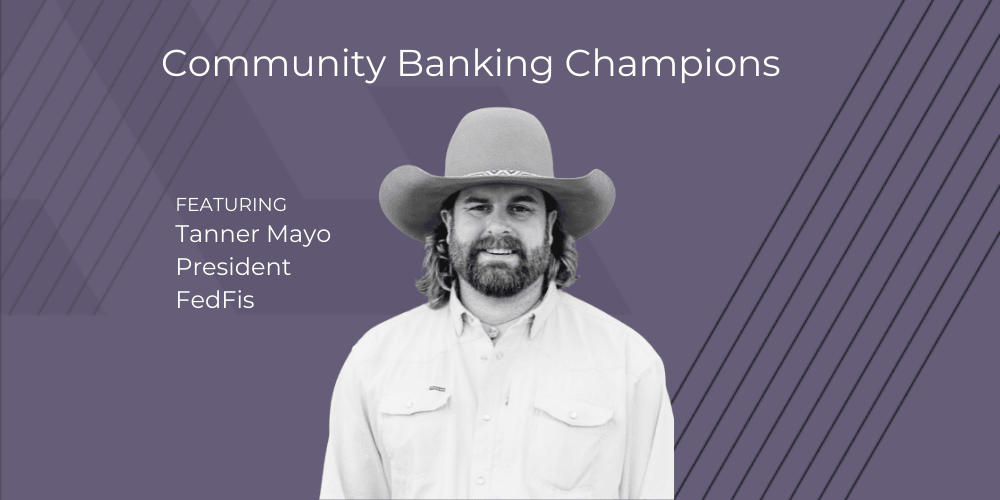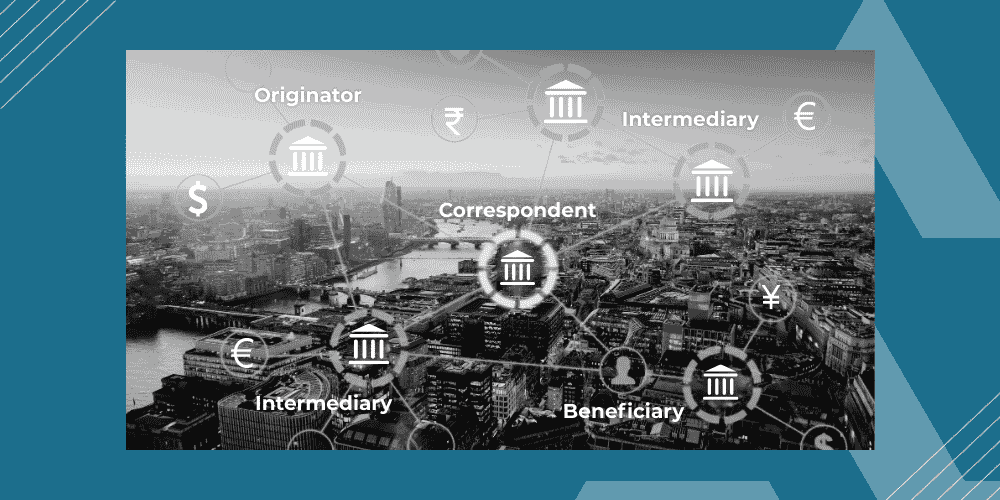The President of FedFis talks ranching, data in community banking, and “The Roundup”
Few people have as much insight into the intersection of technology, data, and financial institutions as Tanner Mayo, President of FedFis and the host of the Fintech Cowboys podcast. With a rich family history in both ranching and banking, Mayo helps community financial institutions navigate the complexity of the modern financial ecosystem. Under the leadership of Tanner and his father, CEO Dave Mayo, FedFis has emerged as a leading provider of data-driven solutions for the banking industry. In this conversation, Tanner shares his thoughts on the role of data in the industry, the unheard voices of community banks, international payments, and embedded finance.
Can you tell us about your family history in both ranching and banking and how that has influenced your career?
I’m a sixth-generation rancher and fifth-generation community banker. We’ve always had a mix of ranching and banking in the family. We run the third oldest ranch in Texas, and I spent a couple of summers as a ranch hand, and then during the school year, I’d be making calls on the banking side. I grew up learning both, but it was the technology side of banking that really caught my interest. My dad was involved with one of the first high-tech software firms in Austin, which eventually became QuickBooks. I began working with the founders of Malauzai, a Finastra company, right at the beginning of the mobile banking revolution, and that’s where my fintech journey really took off.
FedFis blends public and proprietary datasets to deliver insights to financial institutions. Can you explain how this works?
At FedFis, we capture everything from call report financials to branch data and blend it with our proprietary datasets. This allows us to provide a comprehensive view of financial institutions and fintechs. For example, we can track the financial performance of technology products used by banks and see if certain products are actually driving growth in deposit accounts or other areas. Take an account opening product from a specific vendor — if it's used by a few hundred banks, we can analyze that peer group to see whether those banks experienced account growth as a result of using the product. We also help fintechs understand which banks would be a good fit for their products based on compatibility with core systems. In short, we deliver data that allows banks and fintechs to make smarter decisions and move market share based on data, not opinions.
The FedFis logo features a buffalo, symbolizing your mission to protect community banks from disappearing. Can you explain?
Community banks are essential to their communities, but many of them feel like they’re on an island — like their voices aren’t being heard. I’ve visited thousands of community banks across the country, and there’s a real sense of isolation. They often feel silenced, like no one is listening, despite being such an important voice for their communities.
I have countless stories from my experiences, especially during the PPP era, where community banks were truly on the front lines. There’s a bit of tragedy in the fact that those voices aren’t heard more widely, but I take personal pride in standing up for the people who are doing so much for their communities.
At FedFis, we care deeply about community banks, and through our data and insights, we aim to give them the tools to compete in an industry dominated by larger players.
How can community banks take advantage of opportunities in international payments, particularly in light of the growing demand for cross-border services?
International payments are definitely a growing area of opportunity for community banks, especially if they’re structured smartly. There’s margin to be made if payments are set up correctly, and this is where it’s crucial to ensure everything is done safely, smartly, and in a compliant manner. Community banks can differentiate themselves by offering efficient international payment services, and there’s real potential for generating additional revenue streams in this space.
FedFis is hosting “The Roundup” conference in November. What makes this event unique?
The Roundup is unlike any other banking conference. We started it about eight years ago, aiming to create something different that brings together senior leaders from community banks and the top minds in fintech. It’s not a stuffy, formal event; it’s more like a gathering of friends and colleagues, where everyone can share insights and collaborate in a relaxed environment. This year, we’ll be discussing hot topics like account opening, cores, payments, and embedded finance. It’s an opportunity to learn from the best in the industry and form partnerships that can drive real innovation. And the best part? It’s all sponsored for community bankers, so no one has to worry about ticket costs.
Speaking of embedded finance, where do you think the industry is going?
The future is clearly in Banking as a Service (BaaS) and embedded finance. Nearly 20% of commercial banks are already involved, and if you’re not, you’re falling behind. The Synapse failure is high-profile, but it only affects about 16 banks using problematic connector models, while most — around 140 — are operating on compliant, clean bank direct models.
Regulators aren’t against BaaS; they just want it done right. They actually believe it’s the future, and that’s why we’re seeing this shift toward maturing the process and tightening regulations. This is a natural correction. For community banks, it’s important not to rush to judgment. Stay informed, keep educating yourself, and be ready to embrace embedded finance when the time is right. This is where the market is heading, especially with increasing retail sector pressures.
Can you elaborate on the idea of regulatory compliance as an opportunity rather than a burden?
Community banks often talk about the regulatory burden, but the truth is, having a charter is a massive advantage. It’s something that big corporations like McDonald’s or Home Depot would love to have. If you have a charter, you have the ability to offer financial services in a way that no one else can. If banks can flip their mindset and view compliance as the cost of this opportunity, they’ll realize they’re holding something incredibly valuable that fintechs and other corporations would love to leverage. It’s about seeing the charter as an opportunity to provide more services and generate more revenue rather than as a burden.
Acceleron builds patented software that allows community banks and credit unions to conduct international payment transactions profitably through a correspondent banking marketplace. Serving over 200 financial institutions and facilitating more than $1 billion in international payments annually, Acceleron helps small banks generate non-interest income and compete more effectively with high-fee big banks. Our solutions integrate seamlessly with top payments platforms, ensuring quick implementation and smooth operation.
 Daisy Lin, Head of Marketing, Acceleron
Daisy Lin, Head of Marketing, Acceleron




